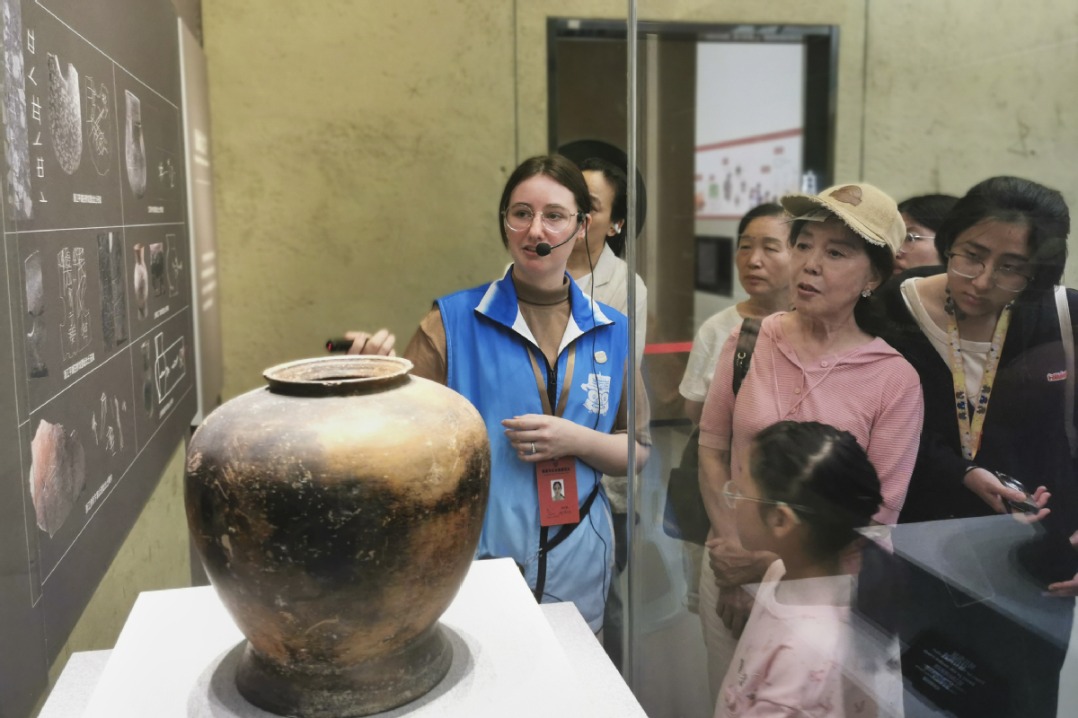Parents help children dodge time limits on online games
Surveys find most are aiding minors despite concerns about addiction
By Zhao Yimeng | China Daily | Updated: 2024-08-20 08:56
Despite concerns over gaming addiction among minors, more than half of Chinese parents are willing to provide their identification information to help their children bypass real-name authentication requirements in online games, recent surveys reveal.
A survey conducted by the Beijing News Think Tank between July 23 and Aug 6 found that 58.5 percent of the 1,156 respondents with children age 8 to 18 admitted to giving their personal identification information to their children for real-name authentication in online games.
The survey found that 57 percent of parents with children age 13 to 15"occasionally" provided their IDs to facilitate their children's gaming, indicating that parents are often willing to compromise when faced with their children's demands for gaming access.
Real-name game authentication for children was launched three years ago to combat gaming addiction by requiring players to verify their identity.
The National Press and Publication Administration issued regulations in August 2021 that stipulated that all online gaming companies can only provide services to minors for one hour between 8 pm and 9 pm on Fridays, Saturdays and Sundays and public holidays.
According to the regulation, online gaming services must not be available to minors in any form beyond these periods.
A report on the protection of juveniles in China's game industry last year said that 46.5 percent of respondents reported using a parent's or someone else's identity, sharing accounts with their parents, or buying or renting accounts for online games.
Only 32.9 percent registered with their own identification, according to the report, which was jointly compiled by the China Audio-Video and Digital Publishing Association and its game industry research center.
A separate survey by Tong Bicheng, a 17-year-old intern at the Beijing Teenagers Law Aid and Research Center, surveyed 1,108 juveniles in eight counties across several provinces.
His report on online consumption by minors in county-level regions, including rural areas, indicates that over 80 percent of respondents play online games for more than one hour every day from Friday to Sunday, as well as on public holidays.
More than 77 percent of the minors he surveyed used other people's identities to register for the games. About 56.6 percent used their parents' IDs, while 12.8 percent used their grandparents' IDs.
Wang Yufen, the grandmother of two girls in Beijing, said they have been using her ID to register online games.
"Most children around us use their family members' IDs for online games, because they are not able to play during the designated periods," Wang said.
Her granddaughters usually do homework, practice musical instruments or play outdoors with friends in the community between 8 pm and 9 pm, while the time before bed or daytime on weekends were more available for online games, she added.
Game companies have different degrees of restrictions, she said, with some looser than others and not requiring facial recognition for authentication.
In Tong's report, a middle school student from Guizhou province said he played games for more than 12 hours a day on weekends and holidays. He said that when facial recognition is required, he tells his parents that a school-related survey needs to scan their faces. That way, his parents unknowingly complete the face scan, which allows him to continue gaming.
More than half the surveyed juveniles said they would be willing to register with their own identification information if they could play online games for nine hours a week and not be limited to an 8 pm to 9 pm time slot, the report said.
zhaoyimeng@chinadaily.com.cn
























